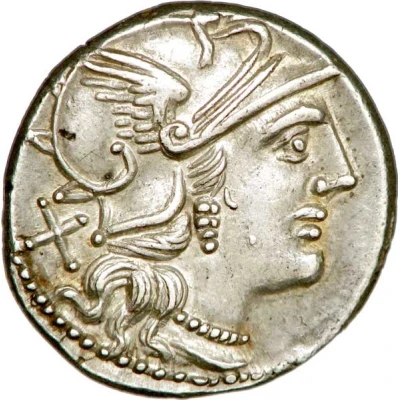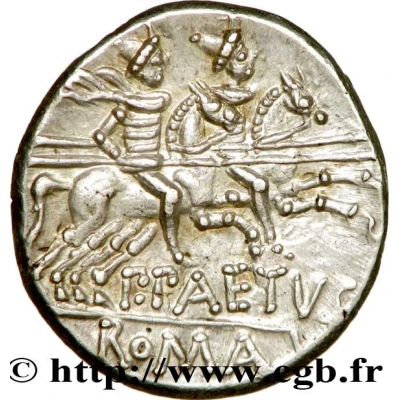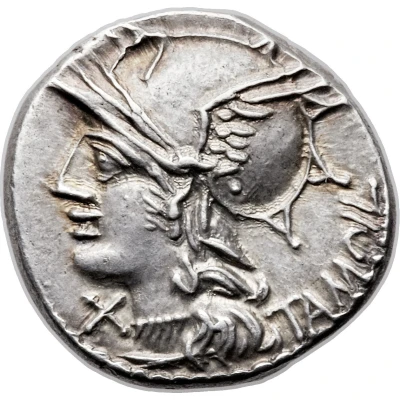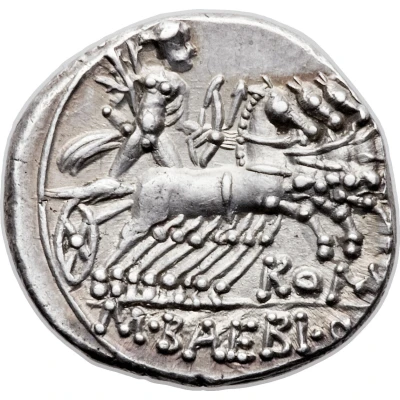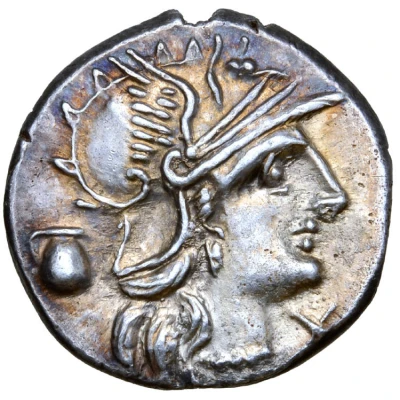
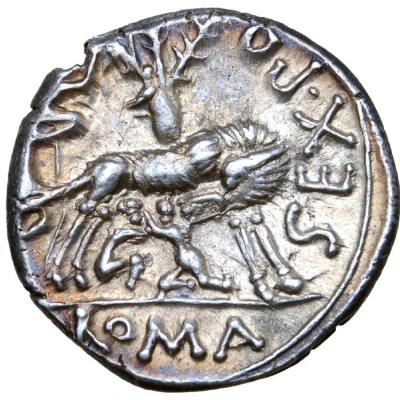

© Roma Numismatics Limited
Denarius Pompeia: Sextus Pompeius; SEX•POM FOSTLVS ROMA 137 BC
137 BC year| Silver | 3.86 g | 19 mm |
| Issuer | Rome › Roman Republic (509 BC - 27 BC) |
|---|---|
| Period | Republic (509 BC - 27 BC) |
| Type | Standard circulation coin |
| Year | 137 BC |
| Value | Denarius (1) |
| Currency | Denarius of 10 Asses (221 – 141 BC) |
| Composition | Silver |
| Weight | 3.86 g |
| Diameter | 19 mm |
| Shape | Round (irregular) |
| Technique | Hammered |
| Orientation | Variable alignment ↺ |
| Demonetized | Yes |
| Updated | 2024-10-06 |
| Numista | N#11138 |
|---|---|
| Rarity index | 86% |
Reverse
She-wolf suckling Romulus and Remus; behind, a wild fig-tree (ficus ruminalis) on which are perched 2 birds on branches and 1 bird on trunk; behind, the shepherd Faustulus standing right leaning on a club.
Moneyer mark inscribed counterclockwise starting at 4H and ending at 7H.
ROMA in exergue.
Script: Latin
Lettering:
SEX•POMP FOSTLVS
ROMA
Translation:
Sextus Pompeius
Faustulus
Edge
Plain
Comment
The gens Pompeia was a plebeian family, and at the same time a consular family, which appears to derive its name from the town of Pompeii in Campania. It furnished the Republic of Rome with several illustrious citizens.According to mythology, Faustulus was the shepherd who found the twins Romulus and Remus on Palatine Hill.
Interesting fact
One interesting fact about this coin is that it features an image of Sextus Pompeius, also known as Sextus Pompey, who was a prominent Roman general and politician during the late Roman Republic. He was a member of the powerful Pompey family and played a significant role in the Roman civil wars. The coin was minted in 137 BC, during his lifetime, and it is believed that he may have been involved in its design and production. This coin is a rare and valuable artifact that provides insight into the political and social climate of ancient Rome during this time period.
